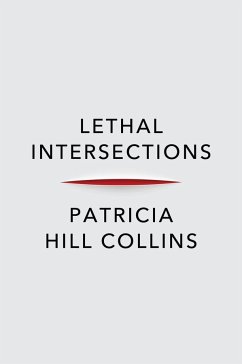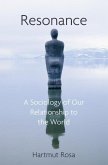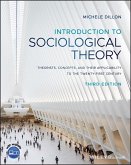School shootings, police misconduct, and sexual assault where people are injured and die dominate the news. What are the connections between such incidents of violence and extreme harm?
In this new book, world-renowned sociologist Patricia Hill Collins explores how violence differentially affects people according to their class, sexuality, nationality, and ethnicity. These invisible workings of overlapping power relations give rise to what she terms "lethal intersections," where multiple forms of oppression converge to catalyze a set of violent practices that fall more heavily on particular groups. Drawing on a rich tapestry of cases, Collins challenges readers to reflect on what counts as violence today and what can be done about it. Resisting violence offers a common thread that weaves together disparate antiviolence projects across the world. When parents of murdered children organize against gun violence, when Black citizens march against the excessive use of police force in their neighborhoods, and when women and girls report sexual abuse by employers, coaches, and community leaders, the ideas and actions of ordinary people lay a foundation for new ways of thinking about and combating violence.
Through its ground-breaking analysis, Lethal Intersections aims to stimulate debate about violence as one of the most pressing social problems of our times.
Also available as an audiobook.
Hinweis: Dieser Artikel kann nur an eine deutsche Lieferadresse ausgeliefert werden.
In this new book, world-renowned sociologist Patricia Hill Collins explores how violence differentially affects people according to their class, sexuality, nationality, and ethnicity. These invisible workings of overlapping power relations give rise to what she terms "lethal intersections," where multiple forms of oppression converge to catalyze a set of violent practices that fall more heavily on particular groups. Drawing on a rich tapestry of cases, Collins challenges readers to reflect on what counts as violence today and what can be done about it. Resisting violence offers a common thread that weaves together disparate antiviolence projects across the world. When parents of murdered children organize against gun violence, when Black citizens march against the excessive use of police force in their neighborhoods, and when women and girls report sexual abuse by employers, coaches, and community leaders, the ideas and actions of ordinary people lay a foundation for new ways of thinking about and combating violence.
Through its ground-breaking analysis, Lethal Intersections aims to stimulate debate about violence as one of the most pressing social problems of our times.
Also available as an audiobook.
Hinweis: Dieser Artikel kann nur an eine deutsche Lieferadresse ausgeliefert werden.
"The brilliant Patricia Hill Collins has written another must-read book, theorizing the relationship between power, intersectional violence, and inequality in expansive ways. It's a tour de force!"
--Joya Misra, University of Massachusetts, Amherst
"Black feminists always benefit from anything Patricia Hill Collins writes. In her latest book, she brilliantly connects disparate practices of violence through an intersectional Black feminist lens. This is a valuable addition to the discourse on antiviolence movement-building."
--Loretta J. Ross, academic, feminist, and activist
"Once again Patricia Hill Collins demonstrates the power and potential of feminist analysis that is always attentive to the structural ubiquity of racial capitalism and to interrelationalities that defy geographical borders, political boundaries, and epistemological limits.
--Angela Y. Davis, Distinguished Professor Emerita, History of Consciousness and Feminist Studies, University ofCalifornia, Santa Cruz
"Lethal Intersections shows how virtually every instance of premature death can reveal the inner workings of power. Early death is the ultimate expression of social injustice. Instead of accepting this inequality as natural or inevitable, Collins urges readers to reject complacency and demand more of democratic governments to protect us from untimely death and to promote our collective wellbeing."
--Christine Williams, The University of Texas at Austin
"A profoundly inviting and compelling account of intersectional violence. Collins leaves no one behind in this analysis, which makes the book an act of resistance in and of itself."
--Patrick R. Grzanka, The University of Tennessee, Knoxville
--Joya Misra, University of Massachusetts, Amherst
"Black feminists always benefit from anything Patricia Hill Collins writes. In her latest book, she brilliantly connects disparate practices of violence through an intersectional Black feminist lens. This is a valuable addition to the discourse on antiviolence movement-building."
--Loretta J. Ross, academic, feminist, and activist
"Once again Patricia Hill Collins demonstrates the power and potential of feminist analysis that is always attentive to the structural ubiquity of racial capitalism and to interrelationalities that defy geographical borders, political boundaries, and epistemological limits.
--Angela Y. Davis, Distinguished Professor Emerita, History of Consciousness and Feminist Studies, University ofCalifornia, Santa Cruz
"Lethal Intersections shows how virtually every instance of premature death can reveal the inner workings of power. Early death is the ultimate expression of social injustice. Instead of accepting this inequality as natural or inevitable, Collins urges readers to reject complacency and demand more of democratic governments to protect us from untimely death and to promote our collective wellbeing."
--Christine Williams, The University of Texas at Austin
"A profoundly inviting and compelling account of intersectional violence. Collins leaves no one behind in this analysis, which makes the book an act of resistance in and of itself."
--Patrick R. Grzanka, The University of Tennessee, Knoxville








